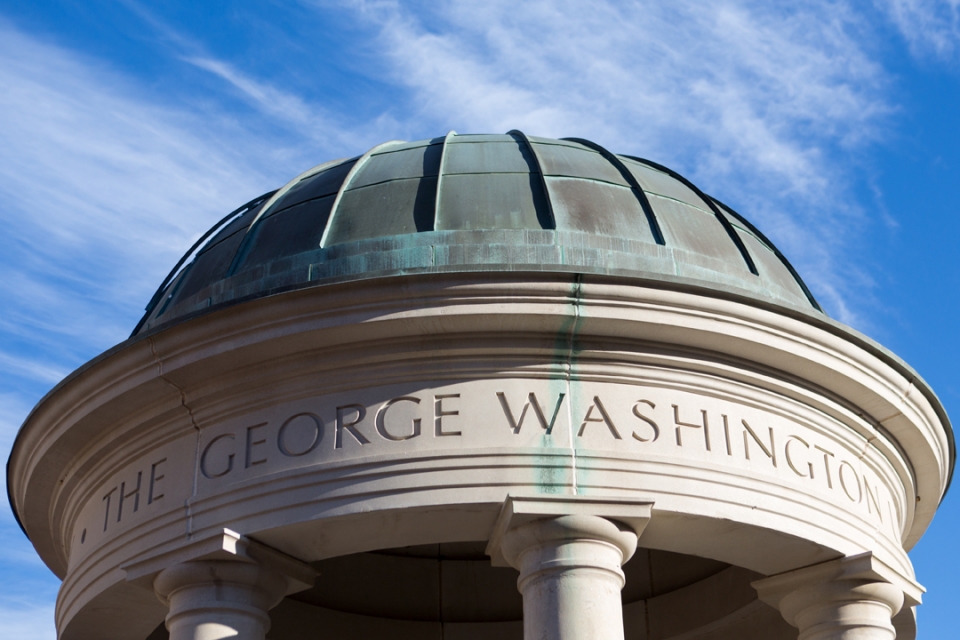We want to make very clear to all members of the George Washington University community that we take the issues of sexual misconduct and sexual violence seriously, and we appreciate and laud the courage necessary for survivors to come forward. We are aware of the Change.org petition and the letter writing campaign about a student employee at the Lerner Health and Wellness Center. The petition expresses a concern about the disposition of one particular case and makes a number of suggestions for improving the process.
The safety and well-being of our students is an ever-present moral and practical imperative for every administrator at GW and guides every decision we make. That guiding principle presents agonizing challenges when the decisions involve possible violations of the university’s policies against sexual misconduct.
Sexual misconduct cases are among the most complicated matters that university leaders are called upon to address and resolve. Each case presents a unique set of facts, circumstances and deeply personal, sensitive information about the students involved. Each case evokes in us intense empathy for the aggrieved student who summoned the courage to report her or his experience. Each case requires that we review the allegations, the specific statements of the parties, the assessment of whether there is a risk to the campus community, the statements of any witnesses who have relevant information, medical documentation if it exists, text messages, email communications, reports of internal and external offices and any other information that could have bearing on a finding and/or sanction.
When all of this information has been gathered and synthesized, we ask a hearing panel comprising faculty, staff and students to make an incredibly difficult determination about the facts and to recommend a sanction. Our hearing panels take their charge seriously and engage in painstaking deliberation. The goal of the panel is to reach an outcome that fully supports the facts of the case, promotes the safety of our students, and where appropriate, results in sanctions directly tied to the case’s unique circumstances.
The narrative emerging from the petition and related activities suggests that GW has been reluctant or even unwilling to hold individuals accountable for acts of sexual violence.This narrative concerns us a great deal because of the message it may send to current and future survivors and our campus. Moreover, the narrative is not borne out by our record.
During the last two academic years (2015-16 and 2016-17 to date), 16 reported cases resulted in formal complaints, 10 went before a hearing board and are concluded. Four of these cases resulted in an expulsion, five resulted in a suspension, and one resulted in a deferred suspension.
While not every case will result in a finding of a violation, our record demonstrates that we are not reluctant to hold students accountable. To the contrary, we are absolutely prepared to remove a student from campus if our analysis leads us to that conclusion and our Student Rights and Responsibilities process is set-up to support such a decision.
Our aim is to reach a conclusion that is understood by all parties while also acknowledging that the outcome and sanction may not be what was hoped for. We remain open to continuing the dialogue regarding our processes. We encourage members of our community to bring forward any new information about matters related to this or any other case and stand ready to respond.
Finally, each of us appreciates the important role of student advocacy on this topic. Under-reporting of sexual assault cases is a national problem. We know that sexual assault cases are under-reported on our campus as well. Student advocacy contributed to the university’s move to mandatory training and dedicated survivor support roles in the Title IX Office. These changes are starting to bear fruit, and we are seeing an increase in the number of complaints, hearings and sanctions.
The relationship between student advocates and university administration has some inherent tension, but we believe that that tension can be useful and productive and strengthens our commitment to ongoing self-critical analysis and improvement of our process. We are committed to reviewing our current practices and continuing the dialogue about our processes. We are also reviewing carefully other suggestions that could help to improve transparency and communication with parties. Despite our current differences, we remain committed to working with the advocacy community because we believe that our students will benefit.
Caroline Laguerre-Brown, JD
Vice Provost for Diversity, Equity and Community Engagement
Peter Konwerski, Ed.D.
Vice Provost and Dean of Student Affairs
Rory Muhammad
Director, Diversity and Inclusion, and Title IX Coordinator



